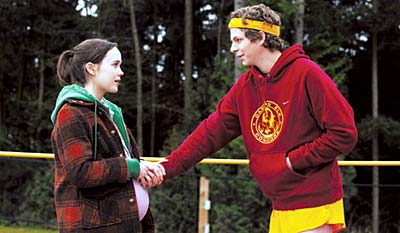Life
Get Married! The Case for Tying the Knot Early

I enjoyed reading Lori Gottlieb’s funny and insightful “Marry Him! The case for settling for Mr. Good Enough, in the March issue of The Atlantic. At 40 years of age, Ms. Gottlieb finds herself an attractive, intelligent, successful woman whose marriage prospects are plummeting like a skydiver without a parachute. She made the seemingly brave choice to have a child by a sperm-donor, thinking she would find her soul mate afterwards, only to find that she now wants her son to have a great dad, which has multiplied Ms. Gottlieb’s own demanding requirements for a suitable mate exponentially.
You have to admire Lori Gottlieb’s devotion to her child, and yet like her old-fashioned mother, think, “Honey, couldn’t you have seen this coming?” Much of the article, in fact, is devoted to reconsidering the kinds of things that mothers typically say, particularly, “Don’t be so picky.” The author rues many of the choices she’s made, as she recognizes the wisdom of the traditional family. She’s even come to believe that romance should take a back-seat to finding a truly helpful partner in running that “small, non-profit corporation” known as a family.
Traditionalists, including me, love articles like this, of course, because they reaffirm the wisdom of the ages against the experimentalism of brave new world sexual practices. Reams of conservative books are constructed, in fact, by piling up such evidences of cultural confusion, and saying, “See! Stop being such idiots!” And, I will admit that when my grown son and his peers lament the sturm und drang of their relationships, all I want to do is holler “get married!” His generation assumes that you have to come out of college and have any number of serious sexual liaisons before you can even think about marriage. Twenty-somethings believe that everyone needs a long preseason before the real game of life can begin.
I have a certain sympathy for Ms. Gottlieb, my son, and his peers, despite my traditional and Catholic views, because they are living in a society whose social structures, in terms of education and work apprenticeship, are even crazier than their sexual practices. Go back to the Puritan literature and you’ll see how many public church confessions were made by fornicating teenage couples. The babies were on the way! The Puritans had the good sense to get the kids hitched, put them on farms, and watch over them. That way young couples didn’t kill each other before learning to live together.
Progressives look at how early people come of age sexually and how late they come of age economically in our society and propose prophylaxis—literally, in the form of condoms, and metaphorically through long sexual try-outs. So we have the Lori Gottliebs who act on good faith in terms of this societal narrative and find themselves betrayed and struggling, if not downright miserable.
But is it enough for traditionalists to say keep it in your pants? Maybe we have to recognize the gap between sexual and economic maturity and start thinking about structural changes in society that will make chastity more than an ideal for those not innately possessed of heroic virtue.
Some of my crunchy-con friends have reinstated the practice of “courting,” as opposed to dating. They tell their kids while they are young that as parents they intend to have a big say in the person they are going to marry. Then, when their sons and daughters reach a marriageable age, around eighteen, the parents allow them to see an approved candidate and only in the parents’ company at first. The parents oversee the relationship, as best they can, all the way to the altar, which these young men and women generally reach as soon as a viable economic future can be managed.
I guess I’m so co-opted by our society’s ways of thinking that this seems extreme, but then I wonder what Lori Gottlieb would think. Would she rather have enjoyed a young adulthood of serial prophylactic monogamy or been married, with her parents blessing, to a young man at a young age, with whom she could have battled it out as they learned to live together? After all, she’d have now what’s she’s finally recognized as her true heart’s desire. Isn’t that better than “settling”?
In addition to my grown son, I have a soon-to-be thirteen year-old son and an eleven year-old daughter. All I know is, what I don’t want for them is to have sex with a string of people as they try to put an economic life together, only to find that the best part of life—marriage and family—has passed them by. And I very much doubt that they are possessed of heroic virtue. So as a father I’ve got what you might call a situation here.
By AT 03.02.08 07:39AM Not Rated
Mary, as I tell my kids, “It don’t mean a thing, if it ain’t got that swing.”
On the other hand, I traveled with a man from India this fall who has been very happily married for twenty-five years to a woman of his family’s choosing. They met two days before their wedding and learned to love one another during their first year together.
The Western emphasis on the sovereign individual has produced generation after generation who neither know themselves, nor trust themselves, because we imagine ourselves to be Emersonian demi-gods, which is the greatest illusion of all. We are often merely “fear in a handful of dust.”
Marriage is meant to be a vocation and a sacrament—a means of shedding illusions and discovering the truth of who we are in the light of Christ.
It’s also a social institution meant to protect children against physical and emotional abandonment.
These understandings actually enable the discovery of our spouse’s humanity and our own. The traditional rules are all-important, I would say, as they actually liberate our feelings, whereas proceeding on the basis of feelings ends in disappointmen—as the hash up my generation has made of marriage in the past forty years attests in encyclopedic detail. How can anyone doubt Lori Gottlieb’s unhappiness or fail to see its cause in the narrative of the god-like self?
The real right thing always gives way to a person with irritating habits, who actually must be loved, if at all, in their incompleteness, and what a pain that is.
But it’s only when we accept the inevitable pain we cause one another, as well as the joys we bring into each other’s lives, that we begin to know what married love truly is and how it participates in redemption.
By AT 03.14.08 04:04PM Not Rated
Yup. I don’t know the author and I don’t know the US - but that certainly seems to be the situation this side of the pond too.
Young people need the support of the family, exactly as you say. I have seen this kind of “dating service plus” work very well for an Indian Catholic friend!
Failing that, I suppose we need the community to help us at least meet eligable people and provide examples of marriage that actually look attractive.
Oh, and buying us a house wouldn’t go amiss ![]()
By AT 03.16.08 02:51PM Not Rated
Thanks, Keir_H. Good families beget good families, by and large, and I suppose it’s a help just to get parents to think about the situation their children will be confronting. I like the idea of buying young people a house. Parents fear doing too much, but certainly whole communities used to get together in rural America for barn-raisings and the like. They had a sense that the whole community’s stability depended on their young people having adequate starts.









By MaryHR AT 03.01.08 12:22AM Not Rated
Marriage without passion? How many of those go up in flames? Too many to count!
I agree that the quest for “experience” is a doomed expedition when it comes to love and sex, but I do believe that at times a relationship may become physical at the right time, even if it is before marriage… I think sometimes we are too logical about love, too obsessed with what is possible, that we might be missing something that will take us to new heights… but I also think that “settling” is unwise… perhaps the real problem is identity and self-knowledge, which come from some experience (not necessarily romantic),difficult reflection, AND the absolute MUST of feeling. One cannot know the self unless one feels, has the courage to feel and resists the urge to SOLVE the feelings.
I find this issue of identity closely linked with intimacy and the success or failure of romantic relationships, indeed of any relationship… in the end, the rules (there are various lists) may not be as important as we all think, but this challenge, to “know thyself” and as Emerson said, to come to “trust thyself” may be the key to question of experience and fulfillment.